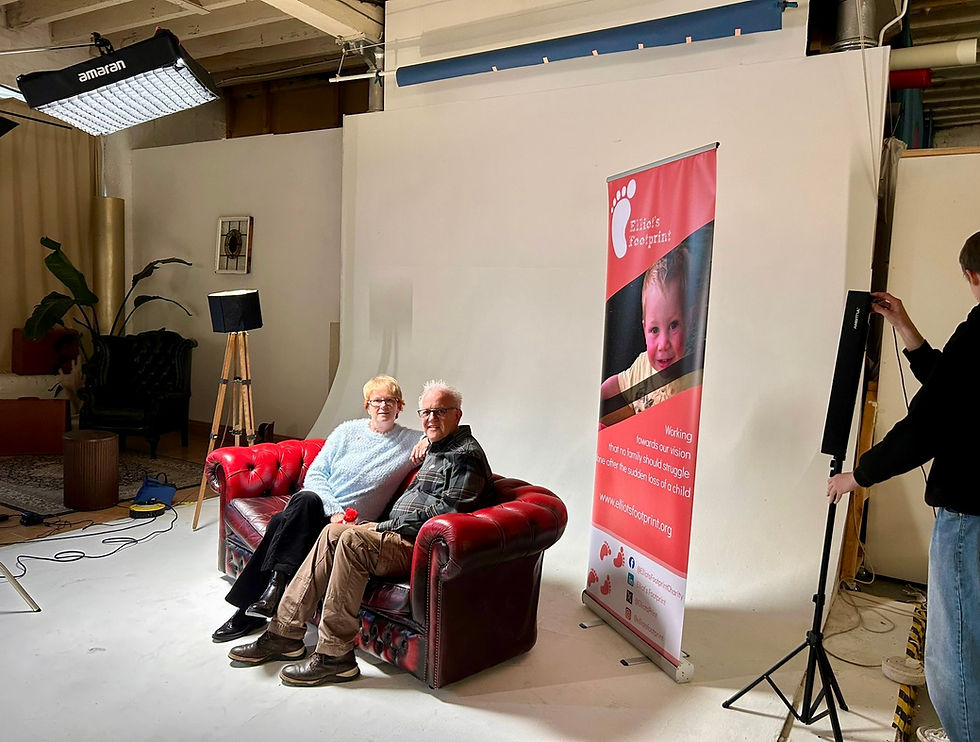Nicola, our Bereavement Support Worker, talks about her role helping families
- Elliot's Footprint

- Oct 26, 2024
- 3 min read

“I can’t begin to know what it feels like for a parent or carer when a child dies, but I can let them know I’ll be there for them when they want and feel able to talk.” Nicola Thornton, Bereavement Support Practitioner (SUDIC), writes about how she supports parents bereaved by sudden and unexpected death in childhood.
When a baby or child dies due to a sudden and unexpected death in childhood, families tell me they feel as if their world has stopped moving, they feel as though they’re standing still while everyone around them is getting on with their lives. They go to the supermarket, for instance, and see people smiling, engaging with others and having fun. It feels wrong - their child has died, why doesn’t it matter to them?
When a child sadly dies there are often so many agencies, procedures and people involved such as the hospital, coroners, doctors, nurses, and maybe even the police. It’s difficult for parents and carers to take things in because everything's happening so quickly that they have no time to register who is who and what is happening. Sometime later they may face a post-mortem, the results of tests and the coroner’s report.
But whatever the outcome and as hard as it undoubtedly is, parents and carers need to be able to process and hear what the professionals are saying and need answers. Sometimes the process can take a long time and, because they've had to wait so long, they ultimately put their grief on hold. For some parents the challenge is that there are no conclusive results and they are left with never knowing why their baby or child died.
My role supporting parents and carers is to listen to the thoughts and feelings going round in their head which can become overwhelming, and about which they can’t necessarily speak with their partner or other family members, and to help alleviate their fears. I also work with other agencies to ensure the family has the support they need; letting parents and carers know that I work with other professionals involved in their care to ensure their needs are being met can give them some reassurance.
When a child dies, under any circumstances, it's about getting through each day. We talk to parents and carers about not trying to give themselves too high expectations of what they can do each day because that doesn't matter. Just getting out of bed and putting one foot in front of the other can be an achievement in itself, not putting pressure on themselves, not having to be strong for everybody else. It's OK to feel sad. It's OK to feel angry. My role is listening, acknowledging their fears and helping them to see that whatever they feel is valid.
Grief is unique to each person and you may have parents and carers who want lots of support and others that don’t want to talk. So be gentle in your approach and maybe take a step back; it can sometimes be six months or more before they might be ready to have a conversation with you. You may not be able to make it right for them, but you can let them know you’ll be there for them when they want to talk.
Nicola’s role is funded in partnership with Elliot’s Footprint, a charity that provides support to parents, carers and siblings following the death of a child including where there has been a sudden and unexpected/unexplained death in childhood (SUDIC) in West Yorkshire.





Comments